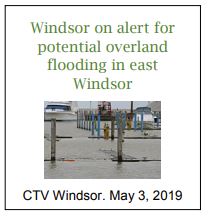Introduction
The City of Windsor has a long-standing commitment to both Climate Change Mitigation and Adaptation Planning. A corporate environmental commitment was made through the development of our original Environmental Master Plan (2007). This document provided the following Strategic Direction:
The City of Windsor is committed to being a leader through its daily actions and services to enhance the environment for present and future generations.
As a result of this direction, the Environmental Sustainability and Climate Change Office has been working on climate change mitigation and adaptation for nearly a decade. Our 2012 Climate Change Adaptation Plan was one of the first of its kind in Canada outlining recommendations to make Windsor a more climate resilient city. In 2017 the City of Windsor adopted a Community Energy Plan, which aims to reduce greenhouse gas emissions and energy consumption, decreasing further contributions to climate change.

Although reducing greenhouse gas emissions is vital to limiting the rate and amount of future climate change, the reality is that climate change impacts are happening now and are unavoidable in the near future. The impacts of climate change are already widespread and have been felt in Windsor-Essex. These impacts include but are not limited to overland flooding, heavy rain event flooding, emergence of invasive species, increased number of high heat days, the rise of vector borne diseases and the re-emergence of blue-green algae and harmful algal blooms in our lakes and rivers.
In the past 4 years the Corporation of the City of Windsor has spent over $8 million on emergency response and unplanned capital investments and the Windsor community experienced $232 million in insured losses as a result of the 2016 and 2017 flood events.
The increasing impacts and costs associated with climate change have made community action on adaptation and mitigation more urgent than ever before.
